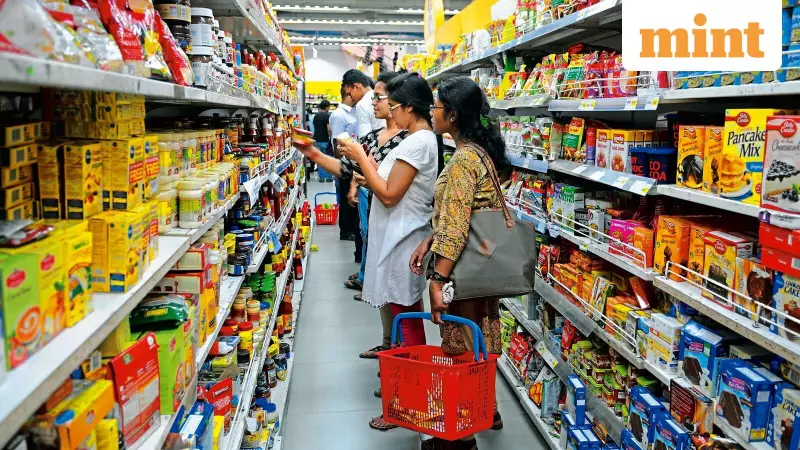
India's fast-moving consumer goods industry experienced significant turbulence during the second quarter as structural changes to the goods and services tax regime disrupted trade channels and temporarily moderated sales across crucial categories.
Understanding the GST Impact on Product Portfolios
The implementation of revised GST rates on 22 September 2025 created widespread disruption across personal care, oral care, foods, and beverages segments. Under the new tax structure, numerous consumer products previously taxed at 18% - including toothpaste, toothbrushes, hair oils, shampoos, soaps, biscuits, chocolates, and Ayurvedic products - now attract only 5% GST.
Similarly, items earlier taxed at 12%, such as instant noodles, cheese, and namkeens, have also moved to the 5% slab. While this change promises improved affordability in the long term, benefiting major players like Colgate-Palmolive India, Hindustan Unilever, Dabur India, Godrej Consumer Products, Tata Consumer Products, Nestlé, Marico, Britannia, and Patanjali, the immediate impact proved challenging.
Company-Specific Impacts and Responses
The transition period saw most companies reporting significant disruption in trade and inventory liquidation as distributors and retailers adjusted to the new pricing environment. Britannia Industries reported that approximately 85% of its portfolio was affected, leading to short-term headwinds in September as channel partners destocked and consumers delayed purchases anticipating lower prices.
Hindustan Unilever revealed that 40% of its portfolio - representing about half of its stock-keeping units - now falls under the 5% GST category. The company implemented pricing and package weight changes across 1,200 SKUs, fully passing benefits to consumers, but this resulted in transitory impacts on volume growth, particularly in personal care and hair care segments.
Dabur India reported that nearly 66% of its portfolio benefited from the GST reduction, bringing 86% of its total offerings into the 5% bracket. However, the company estimated an impact of approximately ₹100 crore, representing 3-4% of quarterly revenue, due to the transition period.
The most significant volume impact was felt by Colgate-Palmolive India, which reported a 6% year-on-year revenue decline - its weakest performance in several quarters - attributing the drop to temporary destocking at distributor and retailer levels alongside consumer pantry rationalization.
Road to Recovery and Normalization
Companies across the sector anticipate demand normalization through October and November, with most expecting the stocking of goods with revised rates to complete within the ongoing quarter. Mohit Malhotra, CEO of Dabur India, noted that the impact extended beyond September into October, with the first 15-16 days of the month also affected by GST-related adjustments.
Sudhir Sitapati, Managing Director and CEO of Godrej Consumer, expressed confidence that restocking would complete within the quarter, while Hindustan Unilever expects normal trading conditions to resume by early November once new prices stabilize in the market.
The industry remains optimistic that once the temporary disruption passes, the reduced GST rates will stimulate demand by making essential consumer goods more affordable to a broader segment of Indian consumers, ultimately driving long-term volume growth across the FMCG sector.






